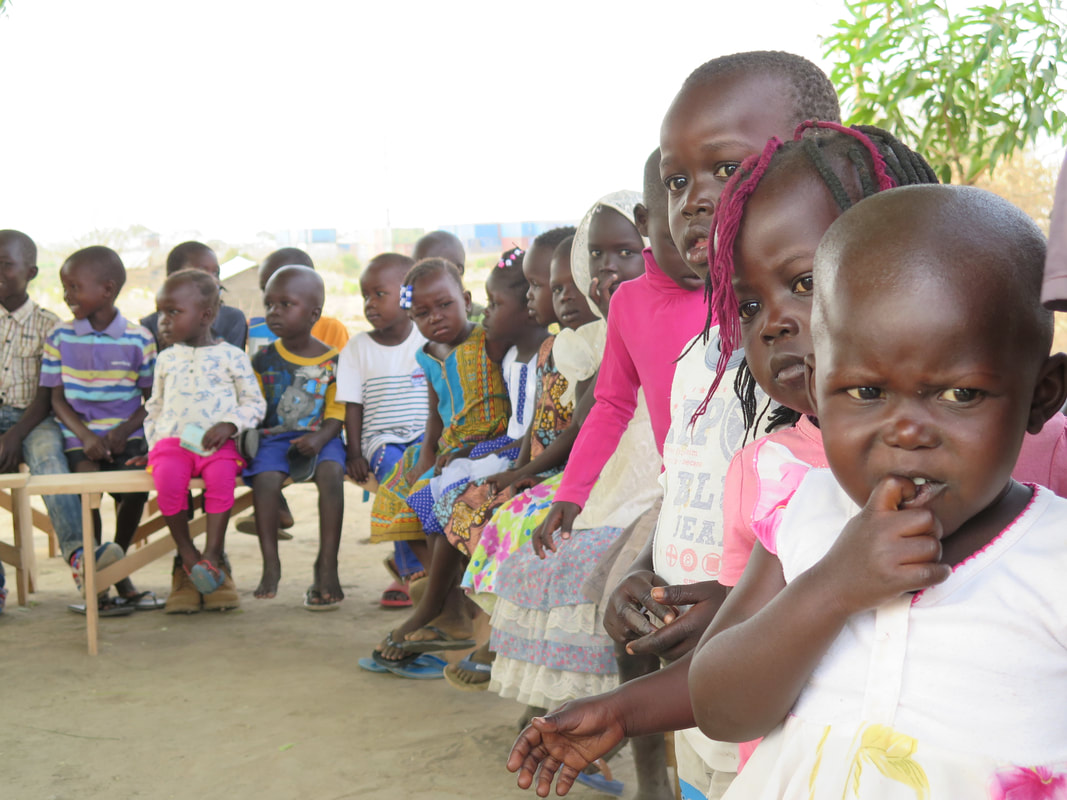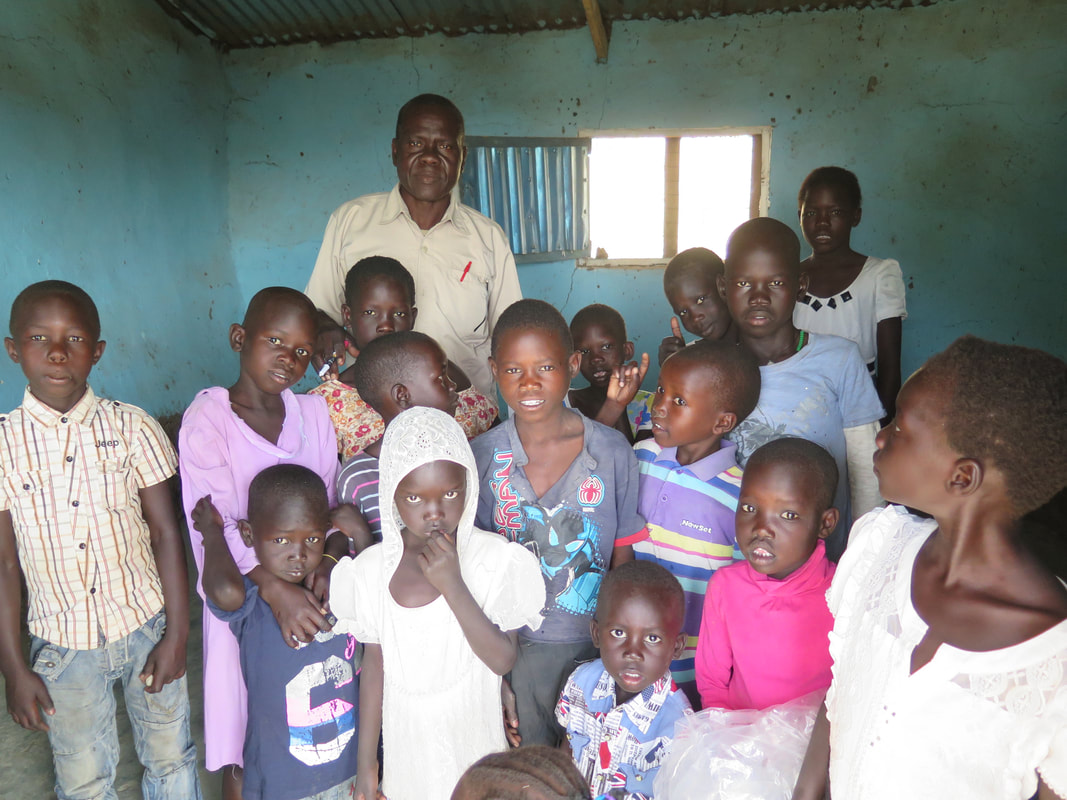With 72 percent of children out of school, South Sudan ranks worst in education among all African nations, according to the United Nations children’s agency (UNICEF). One of the most common reasons for non-attendance is the long distance students have to walk to school. School enrollment, which was 42 percent at the start of the war, has plummeted. Only 700,000 school-aged children out of a total of 2.5 million attend classes, UNICEF says. The world’s youngest nation gained independence in 2011, but civil war erupted in late 2013. Tens of thousands have been killed and one-third of the country’s 12 million-strong population has fled their homes, creating Africa’s largest refugee crisis. In the capital city Juba, UN has two large bases, one housing UN staff and approx. 40,000 Internally Displaced Persons (IDPs). These IDPs are now receive protection and support from the UN and Inter National Humanitarian agencies, including free education. However, the communities adjacent to the base and IDP camp receive very little support either from the Government or the International community.
During the July crisis of 2016 the villages adjacent to the UNbase Nakituni and African Queens were harassed and attacked, the area was heavily contested over a four day period resulting in the looting of most of their belongings and total destruction of community areas including the local school. Village elders have worked tirelessly over the past 12 months to rebuild their lives, unfortunately with a dire economic situation, fragile security and scarce employment they have been unable to reestablish their lost school without assistance.
CURRENT SITUATION: In direct cooperation with the community of African Queens village, four buildings have been sourced (three classrooms and an office/store) two teachers have agreed to return and funding has been agreed to open the school and provide free education for three months, after which the school will be self-funded by the community - as it was prior to Jul 16.
At the 5th of February 2018 the school opened with 51 children but they expect to attract up to 100 within weeks and potentially numbers will rise to several hundred or more within months.
Being in school gives children some protection from being recruited as child soldiers or forced into other dangerous means of survival, such as selling sex.
During the July crisis of 2016 the villages adjacent to the UNbase Nakituni and African Queens were harassed and attacked, the area was heavily contested over a four day period resulting in the looting of most of their belongings and total destruction of community areas including the local school. Village elders have worked tirelessly over the past 12 months to rebuild their lives, unfortunately with a dire economic situation, fragile security and scarce employment they have been unable to reestablish their lost school without assistance.
CURRENT SITUATION: In direct cooperation with the community of African Queens village, four buildings have been sourced (three classrooms and an office/store) two teachers have agreed to return and funding has been agreed to open the school and provide free education for three months, after which the school will be self-funded by the community - as it was prior to Jul 16.
At the 5th of February 2018 the school opened with 51 children but they expect to attract up to 100 within weeks and potentially numbers will rise to several hundred or more within months.
Being in school gives children some protection from being recruited as child soldiers or forced into other dangerous means of survival, such as selling sex.


 RSS Feed
RSS Feed
